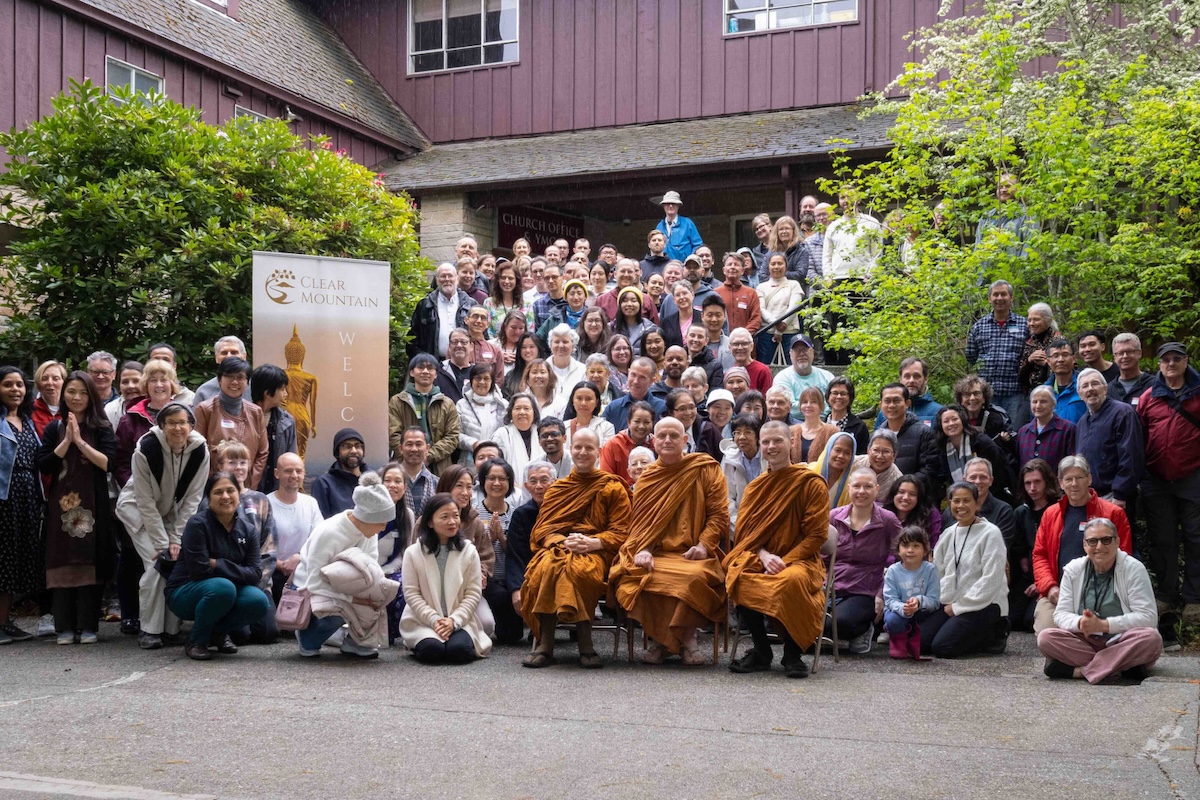Ajahn Jayasāro tells the story of arriving in Iran penniless as a young man, having determined to travel central Asia and the Middle East with nothing but his practice and trust in the goodness of those he encountered. Weeks of hitchhiking and sleeping rough, including a night spent rolled in a carpet high in the Hindu Kush, had left his dusty clothes draped over a gaunt frame, his eyes bright with the ascetic edge’s first cut.
One morning in Tehran, he found himself facing a woman who, having looked him up and down with obvious disapproval, sternly motioned him to follow. Not saying a word, she led him across the street and up a staircase to her apartment, where she herded him into a bathroom. Motioning to the shower, she promptly turned and walked out, throwing the door shut to punctuate her meaning. As he scrubbed weeks of caked dirt from his skin in the rising steam, the door cracked open, and a hand reached in to drop a t-shirt and pair of jeans—the woman’s son’s—into the room. He walked out of the bathroom dressed in the new outfit, allowing with some embarrassment the woman to take from his hands the old, sweat-stained clothes, and usher him to a table where a meal sat ready. He ate quickly, assuming from how her eyes kept straying to the clock that she was late for work. When he’d finished, he followed her back down the staircase, where she ushered him back into Tehran’s sunlight before turning to disappear into the crowd of pedestrians and street stalls. The entire encounter had occurred without them exchanging a single word.
Months later, as he was meditating in an ashram in Northern India, the morning’s memory arose again, and he found tears coating his cheeks. It is a measure of the practice, he would later say, that you become more and more sensitive to goodness, and the young traveler found the new quiet between his breaths suddenly echoed with an unknown woman’s unprompted act of caring.
Then, the thought occurred, “Why does the memory of this woman’s act of kindness move me to tears, and yet I hardly ever think of my parents? They clothed me every day. Every day, they fed me. Every day, they took me in and ushered me back into the world.”
It is in this way, he would later say, that clear seeing gives rise to gratitude, to devotion to one’s parents, to an understanding of all we have been given.
Ajahn Jayasāro’s visit to Clear Mountain earlier this month represents a visit from a monastic father, and in him, a symbol of the lineage that has gifted us our ordination and our community’s purity of purpose. What Thailand and the lineage of Luang Por Chah has preserved in the Thai Forest Tradition rings a clear note against the world’s discord. It is one that sounded all the more precious earlier this month, resonating through a borrowed church hall filled with two hundred Seattle residents, over a line of twenty-five faithful waiting to give alms at Pike Place Market, and through cedar trees standing silent vigil over a potential property visited on Cougar Mountain.
Ajahn Jayasāro’s visit prompted over $100,000 of donations from disciples in Thailand, bringing the total pledged and donated for Clear Mountain’s aspiration to over $1 million. More than a material gift, the donation represents the Thai community’s faith that we will honor what they have preserved, even as their hands usher us back into the world like a mother’s send young traveler, newly clothed and fed, back into Tehran’s sunlight.
May all beings be well.

















